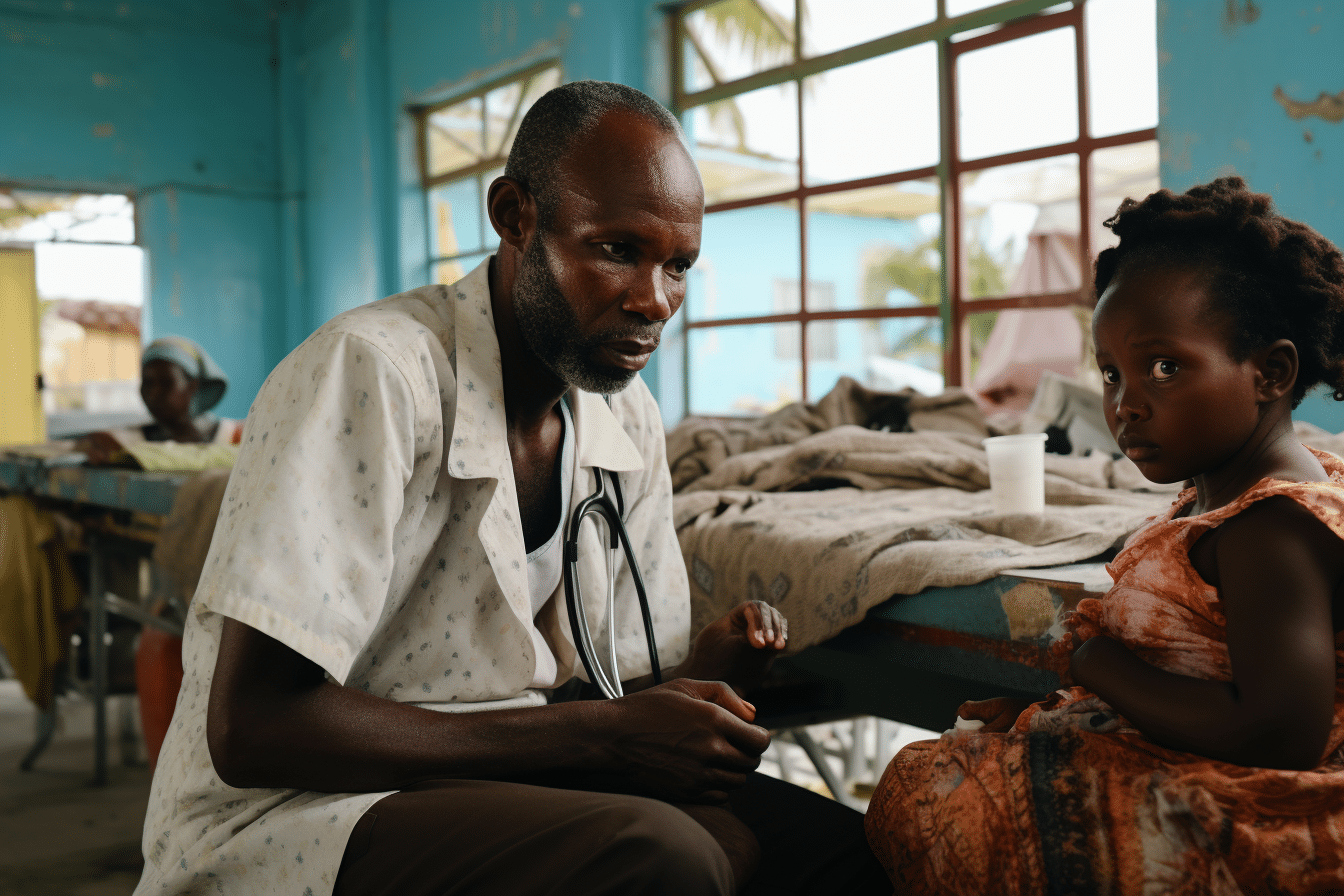
As chaos and violence continue to grip Haiti, a harrowing situation unfolded at the Fontaine Hospital Center in Port-au-Prince. On a seemingly ordinary day, a heavily armed gang laid siege to the hospital, effectively trapping vulnerable individuals inside. In a desperate plea for assistance, the hospital’s director took to social media to highlight the crisis. The Fontaine Hospital, often seen as a beacon of hope in the gang-ravaged community of Cite Soleil, became a prison for its occupants, as gang members barred women, children, and newborns from leaving the premises.
Jose Ulysse, the founder and director of the medical center, recounted the ordeal to The Associated Press, detailing how the surrounding homes were set ablaze and exits sealed off. Initially fearing that gang members had breached the hospital itself, Ulysse was relieved to confirm that the intruders had not made it inside. In response to his appeals, Haiti’s National Police mobilized with armoured trucks, orchestrating the extraction of 40 children and 70 patients to a secure location. Among those rescued were children dependent on oxygen—an indication of the fragile lives placed in jeopardy during the siege.
The perpetrators, identified as the Brooklyn gang led by the notorious Gabriel Jean-Pierre, alias “Ti Gabriel,” have asserted their dominance in the area. Their influence stems from their leadership in G-Pep, a formidable gang coalition engaging in kidnapping, extortion, and widespread violence, as noted in a recent UN report. This incident is but a symptom of a broader crisis where Haitian gangs have grown increasingly bold and powerful, particularly after the assassination of President Jovenel Moïse in July 2021, which has led to a surge in kidnappings and murders.
In an earlier visit to the Fontaine Hospital Center, Ulysse had revealed to the AP that gangs had personally targeted him on two separate occasions. The growing audacity of these gangs was further evidenced when armed members infiltrated another hospital operated by Doctors Without Borders, abducting a patient mid-operation under the guise of a medical emergency.
The incident at the Fontaine Hospital Center has underscored the dire conditions under which Haitians are living and the urgent need for a concerted effort to restore order and security. As the international community and Haitian authorities grapple with this complex crisis, the courage and resilience of those like Ulysse shine as a testament to the enduring spirit of those fighting for peace and stability in Haiti.
In conclusion, the siege at the Fontaine Hospital Center is not an isolated event but a stark reminder of the rampant gang control in Haiti’s capital. The unwavering commitment of the hospital’s staff and the timely intervention of the National Police have averted a tragedy, but the root causes remain unaddressed. The people of Haiti continue to live under the shadow of fear, hoping that the world will hear their cry for help and act before it’s too late.
